Tennis No 1 Cameron Norrie: ‘I probably enjoyed myself a bit too much’
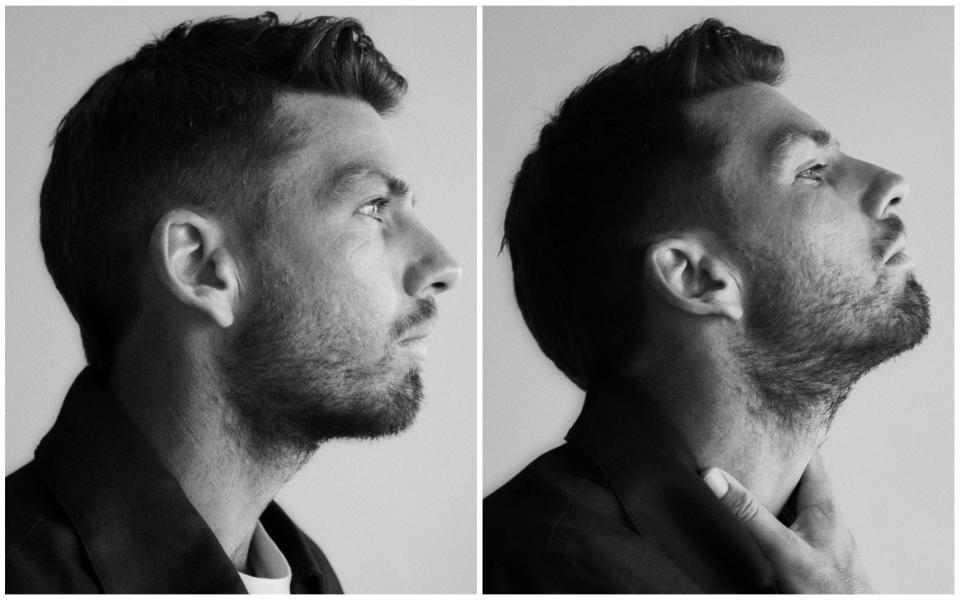
Other professional tennis players are envious of Cameron Norrie, Cameron Norrie tells me. It’s for a specific, modest reason, but as we share a bottle of high-end mineral water on the roof of his hotel in Madrid, it strikes me that the British No 1 has plenty his peers might covet.
There is, for instance, the dogged left-handed style – spinny forehand, flat backhand, work rate of a honey badger – that never seems to get any easier to play against. There are Norrie’s freakish fitness levels, notable even among those paid to be freakishly fit. There are the now-regular visits to the business end of major tournaments, be it the Wimbledon semifinals last year or victory over the Spanish prodigy Carlos Alcaraz in the final of the ATP 500 event in Rio de Janeiro in February.
Then there’s the fact Norrie is properly, not-just-tanned-and-fit-from-the-neck-down-and-seen-from-afar, good looking. And there’s even his general demeanour, so straightforward and laid-back you wonder if he’d even know how to destroy a racket, let alone feel moved to.
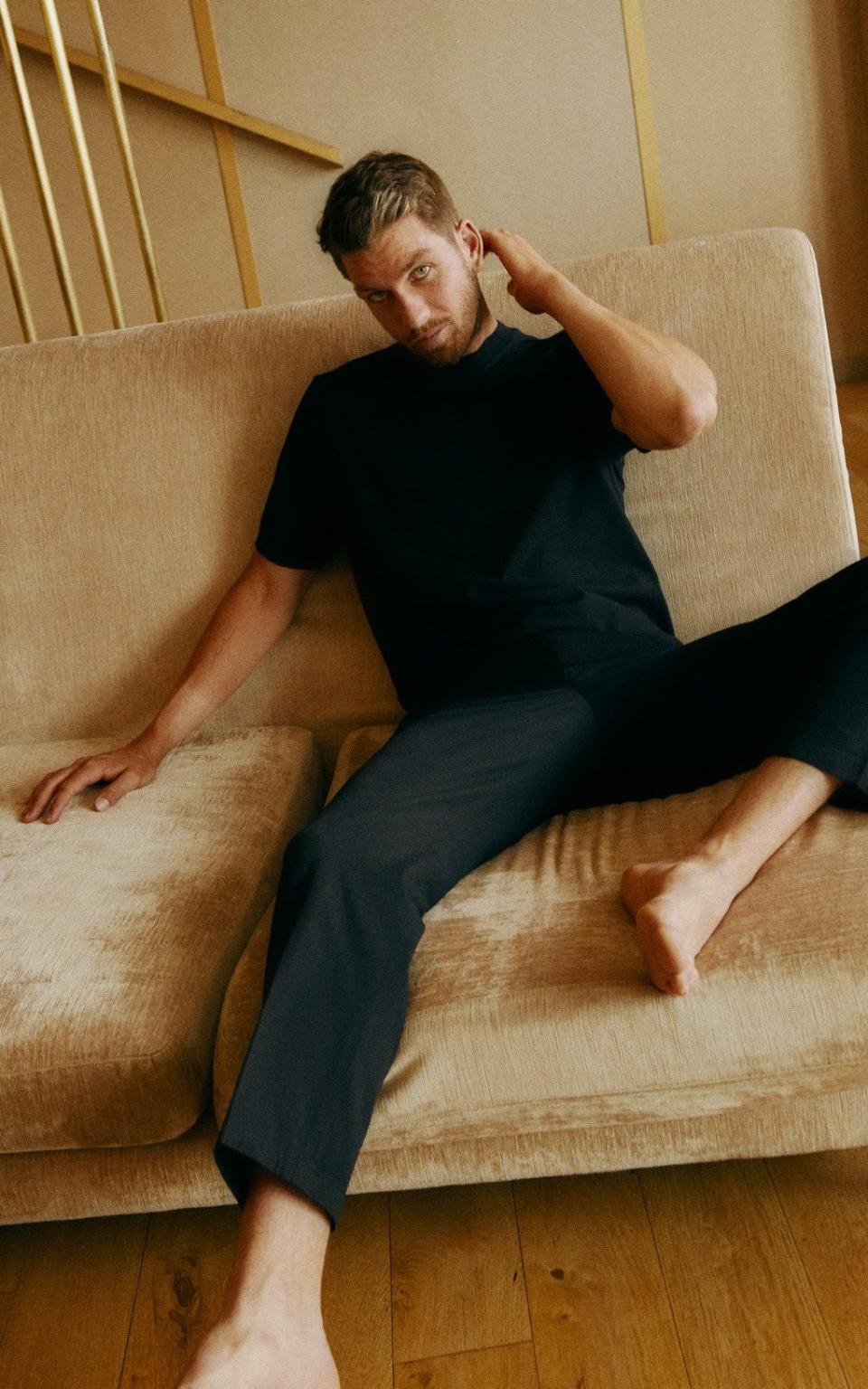
A ‘normal life’
But that’s not why they’re jealous. Or at least, not what they tell him. No, the others are envious because Norrie, by the absurd and coddled standards of elite tennis players, managed to experience a tiny sliver of normal adolescence before his entire life became about the sport. In this he is something of a maverick: he did – and does – things his own way.
‘Yeah, there’s a lot of other players that are jealous, they missed all that,’ Norrie says, leaning back to feel the sun on his face. A decade ago, sensing he wasn’t quite ready to leap straight into professional tennis, he enrolled on a sociology degree on a sports scholarship at Texas Christian University (TCU) in Fort Worth – and, by his own admission, made the most of it.
‘In the first year I probably enjoyed myself a bit too much… Then I made the decision to really give the sport a go and do it properly.’ He hit a lot of tennis balls, obviously, but also partied, studied and made normal friends. All the while, the people he plays against now were already on the relentless treadmill of tennis, tennis, tennis.
‘They’ve gone straight from the juniors, and they’re unreal talents, straight into the top 50, like [Nick] Kyrgios, [Andrey] Rublev, [Borna] Corić… all those guys who are around my ranking now, but I was so lucky to have that normal experience, to be still working on my craft and going to classes and learning other stuff. Cool stuff. Now, I don’t feel like I’ve missed out on my youth.’
It’s a good point, I say. Kyrgios, the mercurial and stroppy Australian, could probably have done with getting some stuff out of his system. Norrie laughs awkwardly. ‘Maybe, yeah…’
Norrie is in his tennis whites, having just finished a day’s training ahead of the Madrid Open (in the days afterwards, he will be surprised to lose in the third round to China’s Zhang Zhizhen).
A film of sweat covers his forehead. He is eager for some crisps, and will get them. But first he must sit still, and – aside from the allotted two minutes between sets of tennis – this doesn’t come naturally to him.
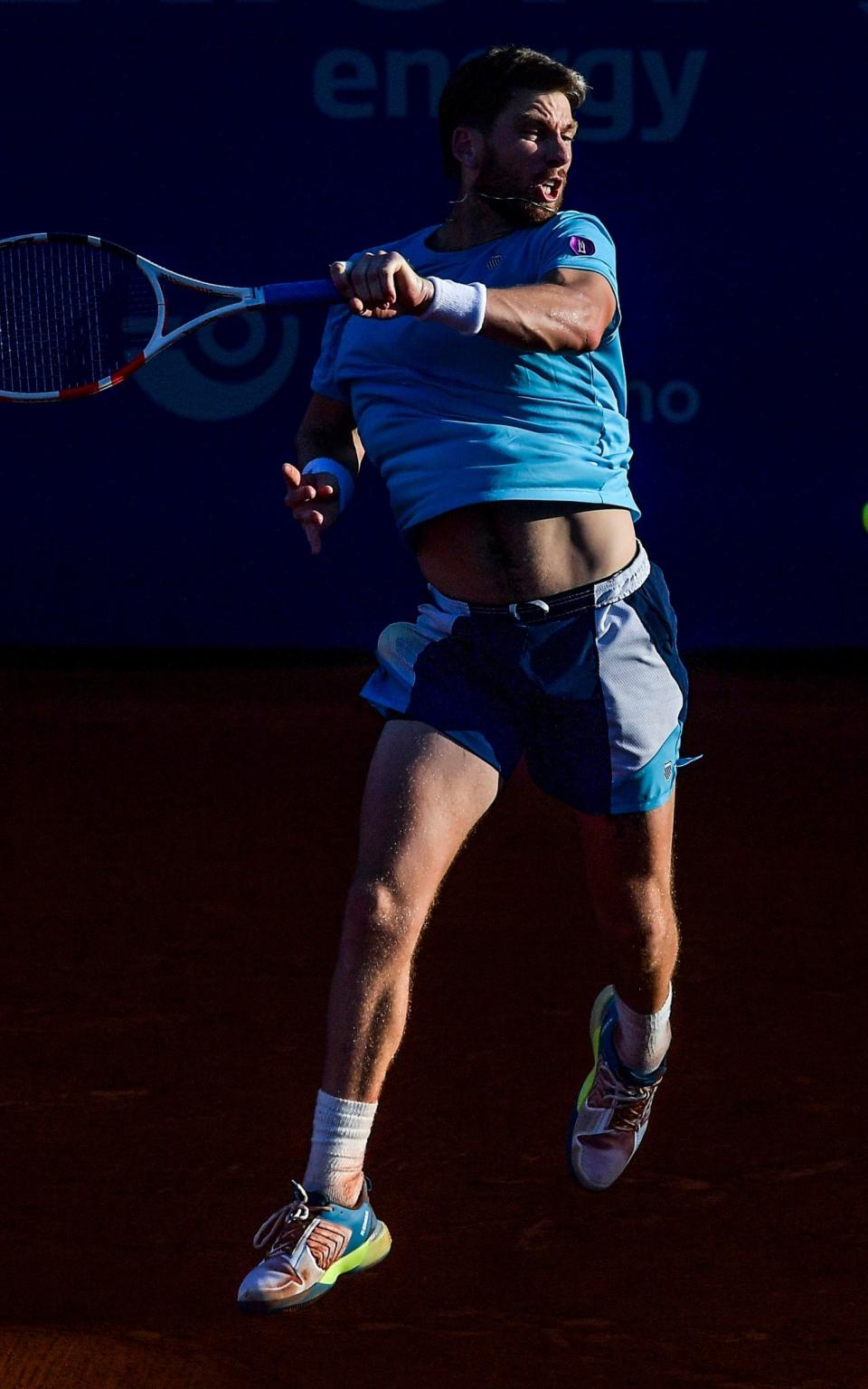
He’s been professional since 2017 (he never did quite finish that degree, though intends to, ‘just to tick the box’), kicking on in recent times to become one of the most reliable performers on the tour, reaching 13 ATP finals over the past two years – a record bettered only by Novak Djokovic.
At the time of writing, Norrie is ranked 14th in the world, but there is no reason that he cannot burrow into the top 10 this year, bettering his highest-ever ranking (No 8) and perhaps even go one – or ideally two – steps further at Wimbledon.
As he bobs his feet under the table, he explains that he has always been restless. Born to British parents in South Africa, he was brought up in New Zealand, spent three years in London as a teenager, then college in the US, then back to London, and currently lives in Monaco. Even now, he travels more than most players.
‘A lot of players need time at home resting, but for me, I want to always do what’s best for my tennis, so sometimes that’s going to train in places and basing yourself around the best players in the world. Right now, that’s Monaco,’ he says.
He moved to the principality from south-west London last November, but aside from knowing that there are slightly better training partners available on the French Riviera than in, say, Roehampton, he isn’t exactly familiar with it. In total, he’s spent 1.5 weeks there – ‘otherwise it’s hotels or Airbnbs, it’s been hectic’.

If given much spare time in the off-season, he says, he’d more likely spend it in London, where his older sister, Bronwen, and his friends live. His parents are about to move there from New Zealand, too. It makes you wonder if there’s another reason for a young millionaire sportsman to relocate to Monaco. The food, probably.
On the road, a few things keep him anchored. One is football. Purely because he liked Alan Shearer as a child, Norrie is an avid Newcastle United fan, and competes, with all the other British tennis pros, in a fiercely active fantasy football league.
‘[Doubles player] Jonny O’Mara’s top at the moment. Andy Murray’s decent. He’s got a lot of chat. He always says he’s not trying, but then he makes a lot of changes so I think he’s just winding everyone up. He knows everything.’
Mixed doubles
The other is his American girlfriend of more than three years, Louise Jacobi. They met in New York, and judging by their Instagram accounts, are about as normal a couple as they could be. She tends to travel with him, working remotely on her interior design business, Please Don’t Touch, but now intends to wind that up and pursue something else.
‘I think it’s tough, in general, for girlfriends on tour. If she had a regular job and was travelling with me, she’d be on calls at night to New York, so it can be tricky. It’s tough to find what really works,’ Norrie says. ‘I’ve been so lucky with her, she’s been really good with me, helping me with a lot of stuff off the court, and with my career. So much goes on, changing every week, hotels and everything, so it’s not easy.’
She’s also very well connected: in March, to the astonishment of a tennis press pack who aren’t used to him being the rock ’n’ roll character on the tour, Norrie knocked around a few balls with Jon Bon Jovi, Jacobi’s family friend. Norrie is ‘not really so much of a fan [but] couldn’t say no’, he said at the time, which could be taken two ways. They played for 25 minutes, Norrie gave some pointers, then they all had lunch in Palm Beach.
He and Louise try to break the monotony of his own tour life by going out for dinner in the ‘cool cities’ they find themselves in. Norrie likes Thai when he’s not near a tournament, but will favour carb-heavy Italian during match weeks. I ask for a favourite. ‘There is an Italian in Buenos Aires called Marcelo. I went there every single night, so I guess it must be that one.’
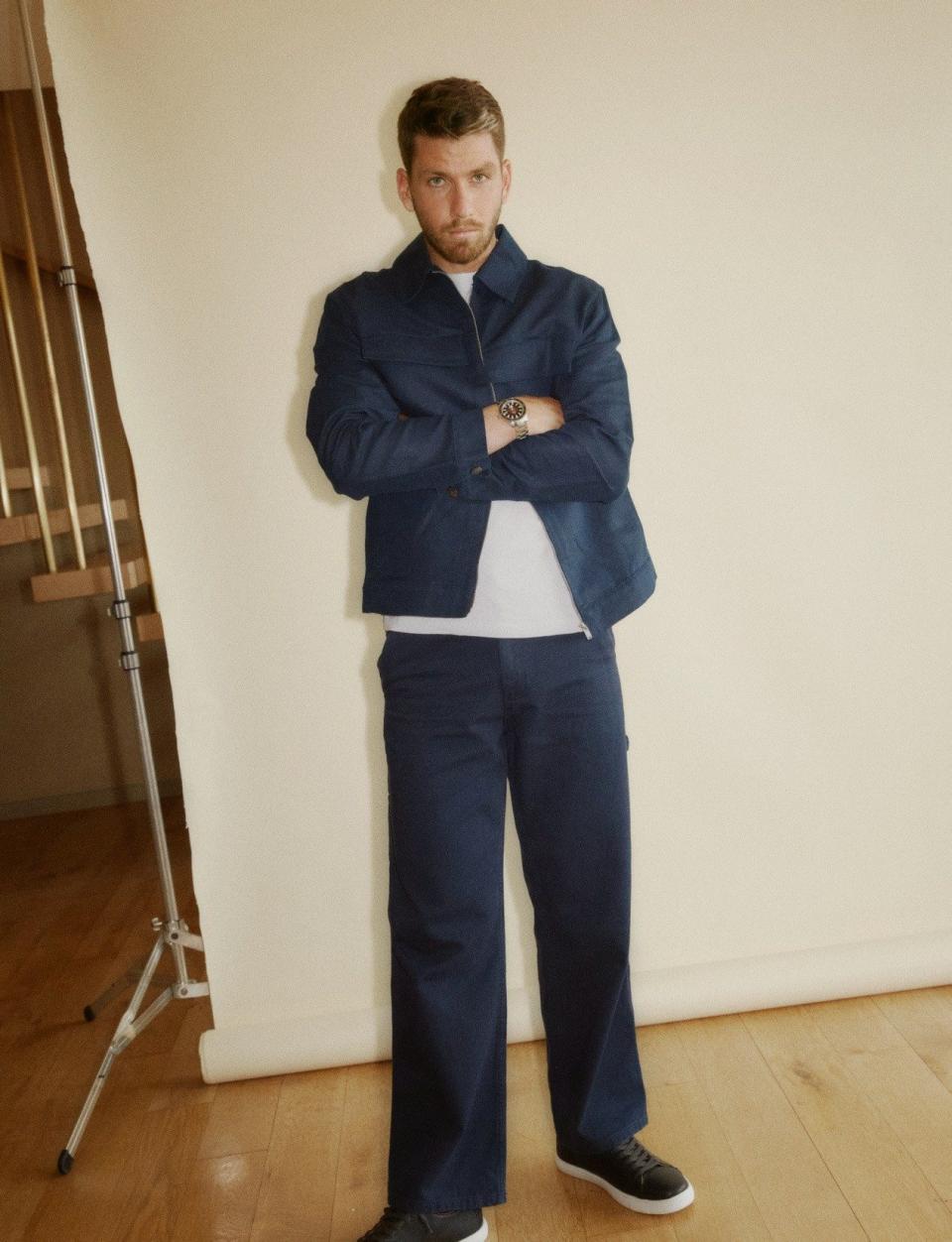
Jacobi is, he concedes, the stylish one. ‘I like to dress well, and I like to feel good, but my girlfriend helps me quite a lot with that. I’m not too into designer brands. It’s simple stuff, I like BOSS quite a lot, I don’t like skinny jeans, I prefer baggy and more comfy, and bigger shirts, not so tight like in the UK,’ he says.
‘I have some nice clothes, I just don’t have the chance to wear them. My girlfriend dresses well, and dresses me well.’ Monaco has ‘a couple of good shops I’ve been to recently’, but going on tour means packing cleverly. ‘You’ve got to be super picky about what you bring to each tournament, you don’t want to bring too much but you always wish you had something else – you end up wearing the same jacket for like, four days.’
Could he imagine a Cameron Norrie clothing line, like Roger Federer?
‘If I get to number one.’
All in the family
Norrie’s parents, David and Helen, were respectively born in Glasgow and Cardiff. Both microbiologists, they met in South Africa, where Helen was brought up, but moved when their son was three, after a neighbour was burgled at gunpoint.
‘A few things happened, it wasn’t looking too safe, so because they had me and my sister they wanted to find somewhere a bit safer.’ Western Australia, where some of Helen’s family lived, was an option, but you can’t get much safer than New Zealand, ranked second on the global peace index.
There, the young Norrie excelled at cricket almost as much as tennis, but found fielding so interminably boring that the latter won his attention. Fitness runs in the family: Helen was a marathon runner, David a very handy squash player; Bronwen, a lawyer, plays netball.
Today, he’s known for his near-superhuman lung capacity and heart function, even if mention of this makes him roll his eyes. He runs a 36-minute 10k and a 17-minute 5k, and by the sounds of it, ought to pursue free diving. ‘I’m honestly not that good at holding my breath underwater,’ he protests. ‘I don’t know if it’s mental or what.’ His heart is especially impressive, maintaining a rate most people would only ever see if they witnessed a bongo player on amphetamines.
Norrie’s long-term coach, Argentinian Facundo Lugones, revealed that his heart rate during matches hits 200 beats per minute. ‘I think a normal person can’t even do half of that, they could probably, I don’t know, die,’ Lugones said. ‘He can play tennis for nine minutes on that.’
The benefits of growing up as a young sportsman in New Zealand are obvious, but the downsides are that in an international, individual sport like tennis, it’s a very small pond for a big fish with very little money.
So when Norrie finished school, he faced a decision. ‘I kept improving and everyone [else] started dropping off at around 16, 17. No one really cared too much about tennis, so no one could show me the way, no one who had been top of the world,’ he says.
Possessing a British passport through his parents, aged 16 he moved 11,300 miles, alone, to London – initially staying at the National Tennis Centre. ‘I went from a pretty normal life to that, and I got burnt out very quickly, but they were good to me, I got a lot of good coaches and contacts,’ he says.
‘Looking back, I was missing the family a little bit, but it was pretty difficult to manage going from normal life at school to fully tennis and nothing else. I felt like I needed a bit more time to live a normal life. That’s why I went to college.’

Norrie was the best tennis player in the American university system at TCU, where he met Lugones. But it was a year before he adopted a fully professional mindset, spurred on in part by a reportedly boozy moped crash before his second year.
‘After [the crash] the coaches really kicked me into gear and I was definitely more professional after that. I grew up a lot after that. From then on I was like, OK, I want to play tennis and commit to that,’ he has said.
Wimbledon grand slam
The international upbringing, mixed with his parentage, has left Norrie with an accent that travels halfway around the world with every sentence. A thoroughly Afrikaans ‘yar’ will visit the adorably Kiwi ‘tinnus’ and finish somewhere around Putney. This remoteness may be a part of why he remained low key in the UK for a long time. All that changed last summer, with a deep run at Wimbledon that confounded even his expectations.
‘Oh, everything came together. There was a big switch [in the public]. That week there were so many people, from nothing, asking for photos with me. I’d go to get a coffee and they’d give it to me for free. Then I’d go to the dry cleaning, they’d say the same thing.’ The classic irony of celebrity: the more rich and famous you become, the more you get given. ‘I know, I know. It wasn’t fair, but I’ll take it.’
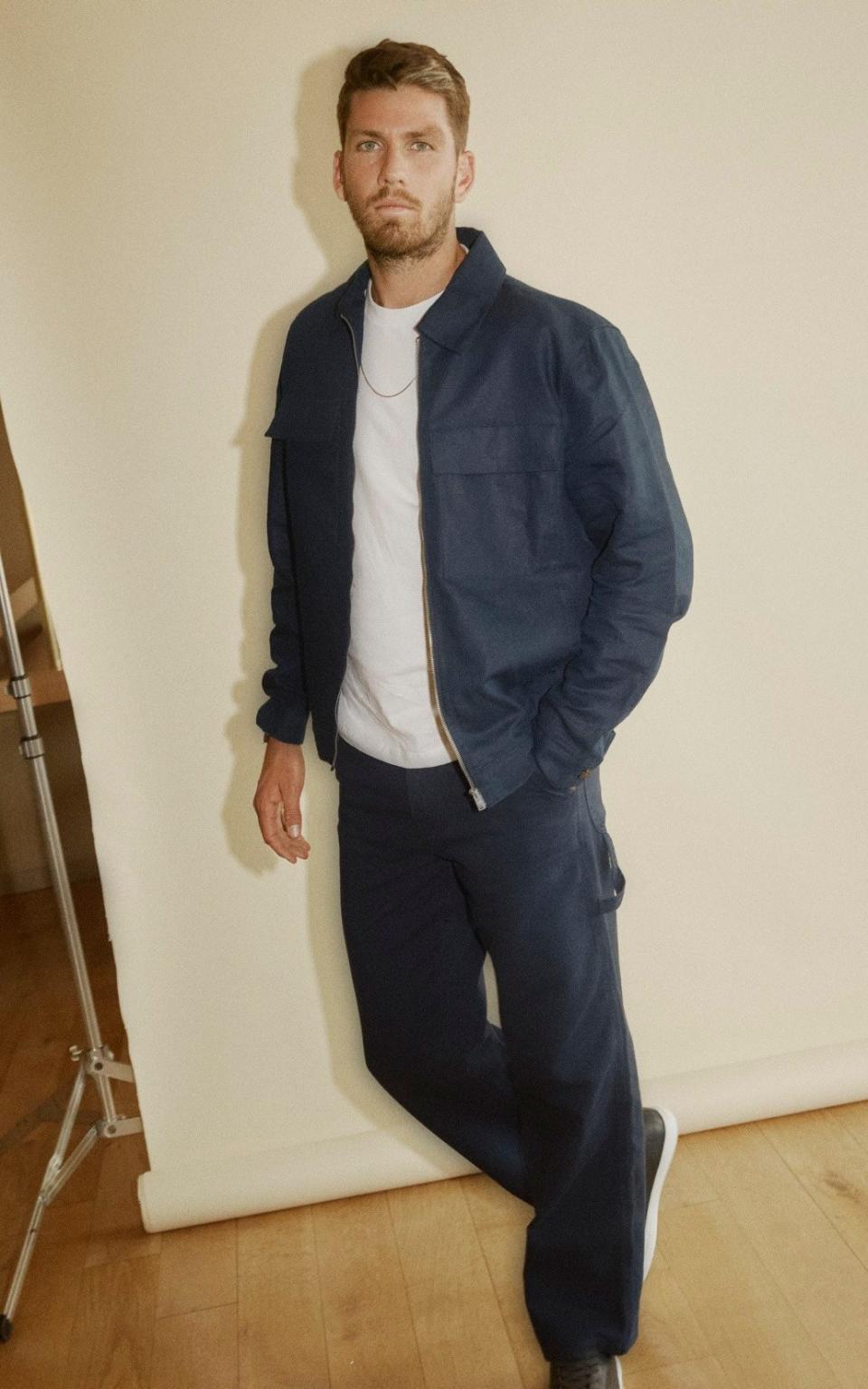
The streets around south-west London are ones Norrie knows well – he recommends Home SW15, if you like modern European cuisine – but he still astounded onlookers (and paparazzi) by bicycling to and from Wimbledon each day even in the knockout stages. He is, he insists, a very proficient cyclist.
‘It didn’t make sense to me, I was living so close, and it was better for the environment. Why have someone from Wimbledon drive out to collect me when I can get there?’ He is a committed environmentalist in a sport that has a carbon footprint like few others. The top few players travel by private jet; Norrie isn’t a fan.
‘Not really, I’ve barely taken them. It can be good for the body to take care of the rest, taking a more direct flight, but I’ve taken maybe one in my life. It’s not ideal how much we’re travelling, but when I can I’m trying to do my part. Like I got the train from Barcelona to here, which was easy.’
Like a lot of sports, tennis authorities saw the image-changing success Formula 1 enjoyed thanks to Netflix’s Drive To Survive and organised its own fly-on-the-wall documentary series. Break Point does not follow Norrie, although they did interview him.
‘To be honest I didn’t like it too much,’ he says now. ‘I liked it in terms of getting people to learn a bit more about the sport, but I don’t think it actually depicts how tennis is, and how things really are on tour. In terms of the players they selected [charismatic rivals Kyrgios, American Taylor Fritz and Norwegian Casper Ruud are among them], I understand why they picked them.
‘I don’t really care too much about being famous and being on Netflix, I want to improve my tennis and become one of the best in the world. I don’t want to be known as a guy who starred on Netflix and then was [just] a good player. I think it can take a player’s focus away, I’ve seen it do that.’
As it is, little can take away Norrie’s focus. Winning the 2021 Indian Wells Masters in Arizona was a turning point (he commemorated the victory with a tattoo of a desert scene on his thigh, joining the Argentinian puma he has on his torso), and Wimbledon showed him he could challenge for grand slams even on a surface he tends not to favour. Now, he says, he plans to finish the year in the top five. I remind him that in October 2021 he told this newspaper he plans to be number one ‘within three years’. He smiles. He’d forgotten.
‘So when’s that, next year? Look, I’m trying to give myself the best chance to do that, and I would say I’m not quite on track for it, but it’s still possible. There’s obviously a lot of guys getting on in their careers, and it’s opening up a bit. When I’m at my top level I can compete with anyone on their day. So it’s doable.’
It’s doable, but not while he’s sitting still, feeling restless. So he’s up again, first the crisps, then into a photoshoot, then out for dinner, then back to practice, then the tournament, then Rome, then Lyon, then Paris, then London, and then, and then, and then... Norrie’s back on the move, but that’s exactly where he’s comfortable.
Photographs by Pablo Curto
Styling by Angela Esteban-Librero
Photographer’s assistant: Sandra Angstadt
Stylist’s assistant: Belen Claver
Grooming: Lucas Margarit at Another Artists Agency, using Givenchy
Beauty
Grooming assistant: María Limón
Creative production: Amelia Trevette
Production: Mayca Márquez and Gema Ruiz at Sample

